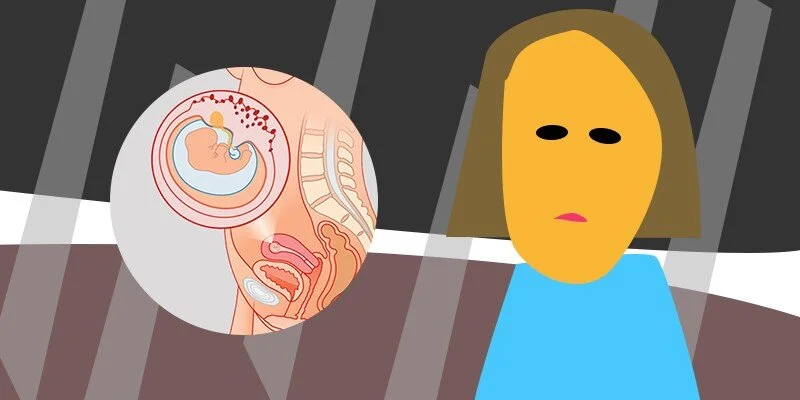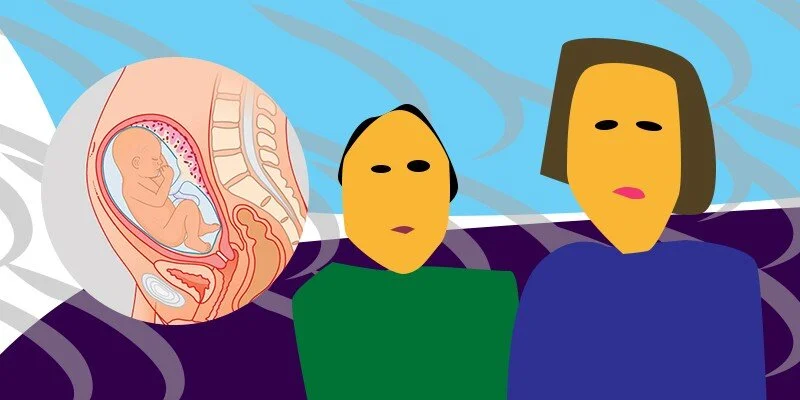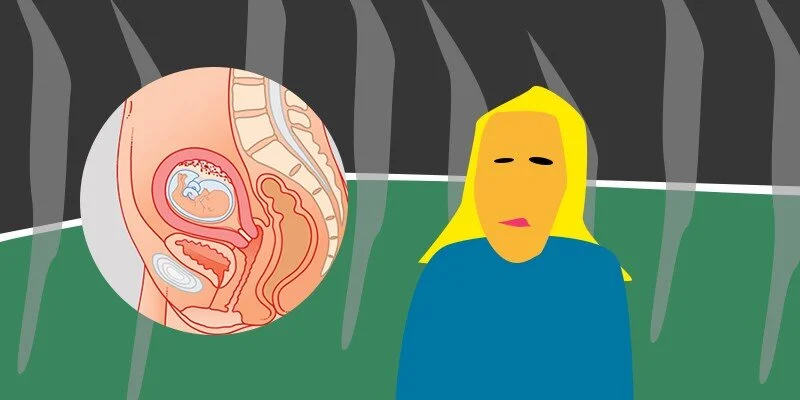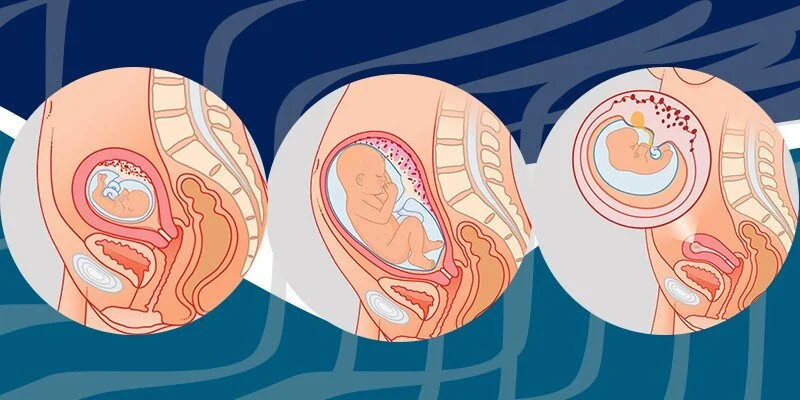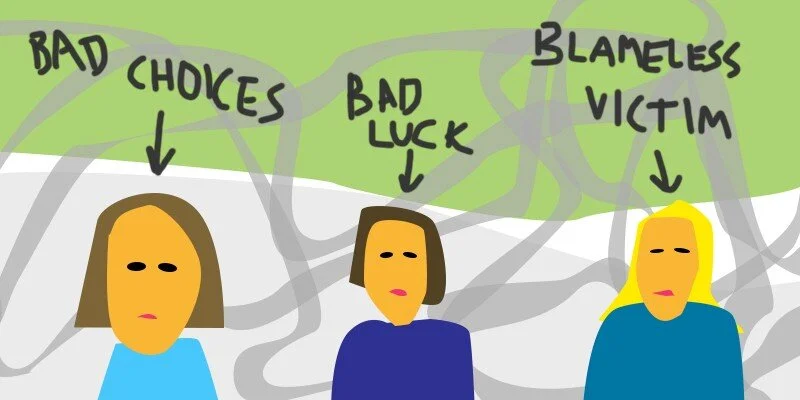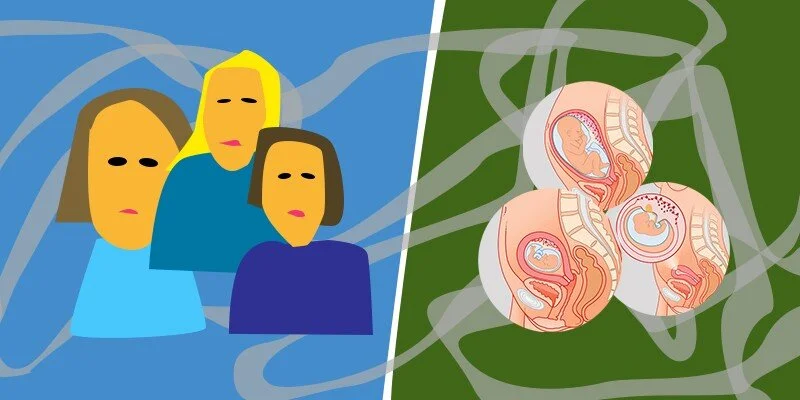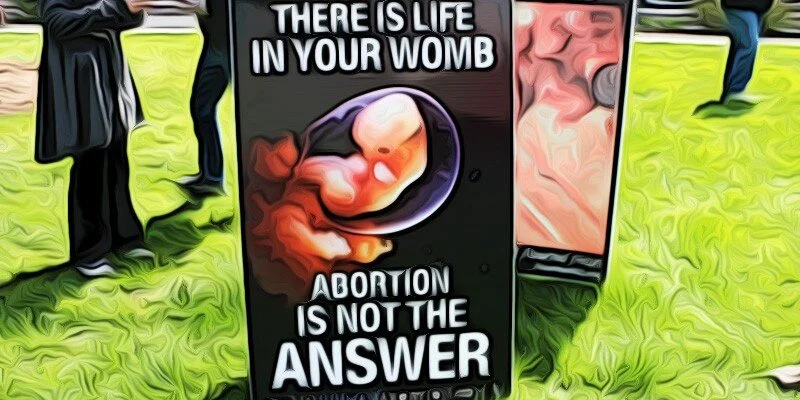The Actual Abortion Debate
The abortion debate is in such a sorry state of gridlock it’s hard to imagine anyone budging. I aim to convince you that this gridlock is because most people are sure that they are grappling with the relevant moral questions and they are severely confused.
Most people seem to think that the ultimate question surrounding the morality of abortion hinges entirely around the claim to “personhood” of the unborn. These kinds of questions come to the surface and appear to be the only ones that matter: Is the unborn alive? Is the unborn conscious? Can the unborn suffer? At what point does the fetus start doing all of this “living” and “suffering”?
This entire line of thinking is misplaced.
It’s true that if the answer to all of those questions were as follows: Is it alive? No. Is it conscious? No. Can it suffer? No. When does it do any of this? Some time after birth. Then the morality question would be resolved. If these were the true answers then we would rightfully grant the unborn all the same moral weight that we grant the wooden coaster under my coffee cup… namely zero. But these answers are not clear in the case of the unborn. In fact, the “right” answers are likely very different from the ones I listed in this paragraph.
The impossibility of proving the consciousness of something from the outside is an intractable problem referred to in philosophy as “the problem of other minds”. Can I even prove the person across from me is having a genuine inner experience or are they just appearing to? While there are a handful of researchers attempting to build scientific models to “measure” consciousness from the outside, these efforts are in nascent stages and have ages to go before they could be considered sturdy enough to construct moral frameworks… if they ever can. So, it’s no wonder the “personhood” question has remained gridlocked. It very well may be a fundamentally impossible question to answer.
So, is the abortion issue hopelessly doomed to an eternity of shouting matches about “life” and “consciousness” which are as old as philosophy itself? It could end up that way if we continue to lock horns on the questions of “pain and consciousness” and don’t begin to meet on the actual moral battlefields which have everything to do with “extreme variables and moral responsibility.”
Here’s what I mean:
Consider 3 cases of pregnancy.
Irresponsible Kelly
CASE 1: Kelly is a 21 year old woman. She is financially irresponsible and has a low paying job in retail. She struggles to make ends meet but isn’t worrying about that kind of stuff at this point her in life. She has a simple apartment in the city and gets by with some government help. She is sexually active with a few different partners. She parties often and sometimes doesn’t use protection. She’s already had one abortion in the past three years. She gets pregnant again. She isn’t sure who the father is but she thinks she’ll be fine to raise the child on her own. At 11 weeks she changes her mind after realizing that she may struggle with a child and decides she no longer wants the baby. She wishes to get an abortion.
In danger Laura
CASE 2: Laura is a happily married 32 year old woman. She and her new husband have good jobs and wish to start a family. She gets pregnant and at the 30 week mark of her pregnancy she receives terrible news that she has a rare medical condition that will mildly threaten her life if she delivers the child. The child has a 95% likelihood of survival and Laura has a 90% chance of surviving the birth. Even though she only faces a 10% chance of death she wishes to get an abortion.
Unfortunate Jessica
CASE 3: Jessica is a 21 year old single woman. She is financially irresponsible and has a low paying job at a restaurant. She is struggling to make ends meet but isn’t really worried about that kind of stuff at this point in her life. She goes out for a jog one evening and is violently raped in the park. This rape results in a pregnancy. After some tortured deliberation and consideration she decides that she wishes to abort the baby at 15 weeks.
If you consider yourself pro-life and your intuitions changed at all in any of these 3 cases, then we have to investigate just how important the “pain and consciousness” question really is to you.
If we accept a few axioms that the unborn baby is never “at fault” for having been conceived and we grant it “life” and even “consciousness” at some point around the heartbeat moment (about 8 weeks). Then in all 3 cases it is only fair to say the abortion is “the taking of an innocent life.” And the “taking of an innocent life” is always immoral… Right?
But here’s the thing. We “take innocent lives” all the time. Doing so is always a difficult decision which should be taken seriously, but given the right conditions and variables we not only allow it but would think doing otherwise to be a monstrous act.
Here’s an example:
Imagine a terrorist has his car trunk packed full of explosives. You have been tracking his activity for a month and have every reason to believe that he intends to drive this car directly into a wedding party with 100 people celebrating in the street where he will detonate the explosives surely killing and maiming countless party attendees. There is a drone over his car armed with a missile which, if fired, would blow up the terrorist’s car and kill anyone inside of it. At the very last moment as his car is just 40 feet away from the wedding, you notice that his 5 year old daughter is in the backseat playing with a doll. Should the drone operator fire the missile?
A badly drawn terrorist attack scenario
Now, this situation is a dreadful one to be in and there is undoubtedly a moral cost to either decision. But it would be hard to cast moral condemnation at the operator who fires the missile. In fact, it may be much easier to cast that condemnation at the operator who refuses to fire it and “allows” the wedding goers to be killed.
You may be protesting that this is an unfair example, but I merely present it to establish that given the right circumstances, which must be extreme, we morally accept or even demand actions which result in the taking of innocent lives. Crudely, these kinds of deaths are called “collateral damage.” They are awful and depressing instances which we ought to move mountains to avoid and constantly design ways to escape. In this particular case, an accurate sniper in the right position with a clear shot may have been exactly the design intervention needed if it was available.
But back to the analogy at hand:
If you grant an exception for pregnancies as a result of a rape (Jessica) or if the mother’s life is in danger (Laura), you’re not alone. In fact only 16% of Americans think abortion should be illegal in all cases. If we carry our axioms in hand, what is happening here is crystal clear to me. Most people view the circumstances and variables in Jessica’s and Laura’s cases to be heavy enough that the scales are tipped in much the same way as the terrorist’s innocent daughter case where we allow or demand “taking of an innocent life”. So why not in Kelly’s case? Let me propose what I think the intuition reveals.
The most common pro-life perspective
The only difference between Kelly and Jessica is the behavior of the mothers. In Kelly’s case she was taking chances with unprotected sex and perhaps other irresponsible behaviors while Jessica was the unfortunate victim of an awful crime. But what does that sentence have to do with baby’s “life, pain, and consciousness”? Precisely nothing. All of the “pain and consciousness” stuff is completely untouched by the victimhood or irresponsibility of Jessica or Kelly. The pro-life position for the vast majority of people finds this moral grounding. While ignorantly professing to be about the baby’s suffering and “murder” it is quickly revealed to be about the mother’s behavior and notions of “responsibility”.
Now, I am not even saying this is an empty or bad argument. Let me try to steel-man it:
There is a utility and necessity of having consequences for our actions, particularly our irresponsible ones. This produces the best moral outcomes on the whole in some utilitarian calculus of maximizing flourishing. A man and woman who take a risk must be held responsible for their actions or else important structures of society such as careful “mate-choice” will crumble and more suffering will ultimately be the outcome.
Those arguments, fundamentally, are morally consistent though they may be (and are) subject to plenty of relevant empirical evidence resistance involving uncomfortable conversations about coat-hangers and deeper philosophical conversations about the incoherence of libertarian free will. The “responsibility argument” is most often expressed in religious terms which grounds itself firmly in notions of spiritual accountability and consequence, but there are ways to make the “responsibility argument” in a secular fashion as well.
The baby in “irresponsible Kelly’s” case sounds like it would have a difficult life. The father is unknown and the mother is young and struggling. For the pro-lifer, these factors don’t carry enough weight. “Kids can overcome difficult conditions and besides the baby could help Kelly get her act together.” Keep in mind that even this rationale is put in terms of Kelly and the concern for her life choices rather than the baby.
But what about the pro-choicer? What are they left with to hold onto in my view? To me, this is also rather clear. The defense that abortion is “not taking a life” is misguided and subject to rightful ridicule and scientific challenge. As I hope I’m beginning to convince you, it is also besides the point. While it may be a more difficult political position, the relevant question for pro-choicers is something like this: What extreme variables and conditions are at play to allow for the taking of the faultless life in some analogous way to other “collateral damage” cases?
But there are plenty of circumstances that I would argue easily pass the extreme standard. To start, we have the special case where a human life is entirely inside of another. This is a unique situation. An appeal to the principle of autonomy is at play to build a case that this variable alone is strong enough to outweigh the admittedly tragic act of taking the life. This is sometimes expressed in a familiar chant of “my body, my choice” which comes close to making the point but can come across as too flippant to the moral cost in question. Other variables such as a situation which may nearly guarantee suffering of the baby should also be factored in. If irresponsible Kelly was in the middle of a crushing famine in Somalia and adoption was impossible, perhaps some intuitions would shift. And, of course, the obvious variable of a woman who simply doesn’t want to be a mother should not be factored lightly.
If none of these variables are good enough to convince a pro-lifer who places ultimate value on the moral necessity of consequences for irresponsible behavior then so be it. But at least we can start talking about the actual questions at hand.
There is work to do for all of us on either side of the conversation but now we can see the appropriate intellectual battlefield on which to meet. Something like the rape exception only makes sense in these lights. And as for the 16% who make no exceptions? At least they are morally consistent and the terms of that often religiously grounded tug of war are clearly stated.
A Quick Word on the Looming Roe v. Wade Battle
I consider myself firmly pro-choice. I only lightly touch on my arguments for that position in this essay. I was simply trying to lay the groundwork for the conversation to get off the ground. I hope I have convinced you that to do that we are going to have to make the shift away from the “It’s murder!” versus “It’s not alive!” noise which has so long distracted the discourse from the relevant moral questions at hand. I find myself without many debate partners who are willing to take on the conversation and I’d like some more allies. But I have another pressing concern.
I hear far too many pro-choicers cling to Roe v. Wade as some sort of barricade which must be defended at all costs as if this single court decision is the thing that protects women. It doesn’t and it won’t.
Let me be clear that Roe v. Wade is important and a tremendous landmark in this long fight. We are in a better place because it exists. But it doesn’t address the concerns in this essay. Roe v. Wade is a decision about protecting babies not about protecting women. That’s a problem for the pro-choice stance.
Roe v. Wade grapples with a central question of “viability outside the womb”. This phrase becomes the fuzzy barometer to establish the line of legality (though it does make rape, incest, and health of the mother exceptions). This viability test at the time of the opinion’s writing correlated loosely to the end of the first trimester of pregnancy. Maybe it seemed like a compromise which punted the actual moral questions I raised here and perhaps it has served us fairly well. But it’s foundation is brittle and weakening.
Given the advances in technology and medical progress the line of viability moves in only one direction, and it moves towards the moment of conception. Roe v. Wade was written in 1973. My fear is not that Roe v. Wade will be overturned. My fear is that pro-life crusaders will use it’s language against itself.
If I am a pro-lifer in Mississippi right now, I would pass a law making all abortions after some absurdly early date illegal. And when it is inevitably challenged in the Supreme Court, I make the case that Roe v. Wade need not be overturned to uphold this restrictive law but that the law actually follows the viability test established in Roe v. Wade. It just so happens that viability now is 3 weeks earlier in 2019 than 1973 due to advances in medical technology. And when that technology advances even further simply rinse and repeat with an earlier restriction. Roe v. Wade could turn out to be the pro-lifer’s best friend.
There is another, though weaker, support in the Roe v. Wade decision which leans on an inherent “right of privacy” for the mother. But this has always had wobbly legal legs and it relates more to the confidentiality to the decision rather than the legality of it.
We don’t have a law in place to protect women. We need one. But first we need to be honest about what the abortion argument actually is.

